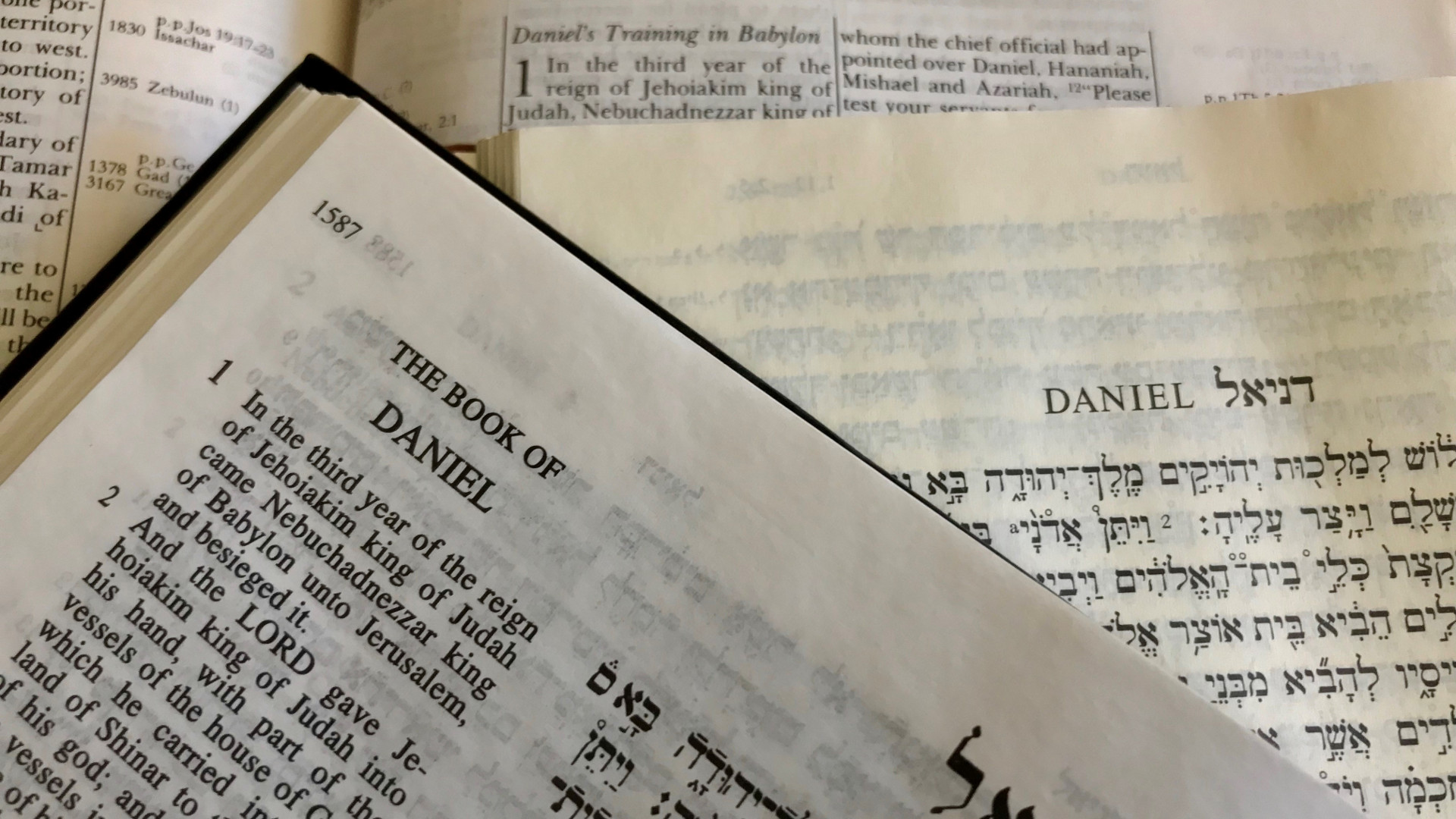
Editor’s Note: The history of missions is replete with examples of God using his Word to call his followers to engage in his redemptive work around the world by praying, giving, going, and sending. The aim of this article series (part one here) is to help Bible students, teachers, and readers recognize the theme of global missions throughout Scripture. In this installment, Dr. Jonathan Akin, director of young leader engagement for the North American Mission Board, examines principles pertaining to global missions from the book of Daniel.
 The book of Daniel is known for its astonishing stories. Accounts such as God’s miraculous rescue of the Hebrew children from the fiery furnace (Dan. 3:8–30) and Daniel from the lions’ den (Dan. 6) are powerful examples of God’s protection over his people. But Daniel isn’t merely a book of wonderful stories. It’s a book of stories and prophecies—prophecies with profound missiological implications for God’s people. The repetitive dynamic of Daniel’s stories in which the seemingly all-powerful foreign rulers of the day were humbled while God’s children were exalted (Dan. 1–6) is what provides readers with a firm basis to trust God’s promises (Dan. 7–12)—promises of God’s unending dominion over every tribe, tongue, and nation.
The book of Daniel is known for its astonishing stories. Accounts such as God’s miraculous rescue of the Hebrew children from the fiery furnace (Dan. 3:8–30) and Daniel from the lions’ den (Dan. 6) are powerful examples of God’s protection over his people. But Daniel isn’t merely a book of wonderful stories. It’s a book of stories and prophecies—prophecies with profound missiological implications for God’s people. The repetitive dynamic of Daniel’s stories in which the seemingly all-powerful foreign rulers of the day were humbled while God’s children were exalted (Dan. 1–6) is what provides readers with a firm basis to trust God’s promises (Dan. 7–12)—promises of God’s unending dominion over every tribe, tongue, and nation.
“Daniel isn’t merely a book of wonderful stories. It’s a book of stories and prophecies—prophecies with profound missiological implications for God’s people.”
The spread of God’s glory among the nations is at the very heart of the book of Daniel. Although written during one of the lowest points of Israel’s history as exiles in Babylon, the book assured God’s people that they were not forgotten, that the Messiah would come, and that his everlasting kingdom would surely be established over all the earth.
Here are glimpses of God’s global purpose as seen in the book of Daniel.
Pagan Attempts to Mimic God’s Global Kingdom
In Daniel, the superpower empires unconsciously mimicked God’s global purpose by attempting to steal God’s ruling authority and establish their own dominion over every tribe, tongue, people, and nation. For example, in Daniel 2, King Nebuchadnezzar had a dream of a giant statue representing his kingdom and three others. In the dream, a stone “cut out by no human hand” (Dan. 2:34 ESV) struck the statue and crushed the temporary kingdoms of the world. The stone—representing God’s eternal kingdom—grew into a mountain and filled the whole earth (Dan. 2:35).
King Nebuchadnezzar’s prideful response to that vision was to erect a huge golden statue in a futile attempt to say, “It won’t happen to me!” Nebuchadnezzar commanded “people of every nation and language” to worship the statue or be thrown in the fiery furnace (Dan. 3:4–6 HCSB). Interestingly, Nebuchadnezzar’s command was similar in wording to the words John used to describe Jesus’ global redemption in Revelation 5:9 and Revelation 7:9.
But, in the end, Nebuchadnezzar’s rule was far from global. He was even powerless to execute the three Hebrews who stayed faithful to God (Dan. 3:8–30).
The Faithfulness of God’s People Living in a Pagan Context
Another way God displayed his global purpose in Daniel was in the faithful living of God’s people while outside of their homeland. Two aspects of their faithfulness stand out in the book: humility and love.
Daniel and his friends practiced their devotion to God humbly in that they did not engage in reckless taunting or chest beating. For instance, when faced with the situation of being defiled by the king’s food (Dan. 1), they resolutely, yet tactfully, resisted. Rather than making a public scene and protesting the king’s provisions by throwing their plates and utensils to the ground, Daniel and his friends acted in wisdom.
They called the king’s official aside and appealed privately to him. They humbly requested a trial run of an alternative diet to show their separateness from the royal house of Babylon. As a result, not only did God honor Daniel and his friends but the young Hebrews also gained great favor among those in their host culture.
Additionally, in Daniel 6, when the king decreed that prayers could only be made to the king, Daniel simply went to his house to pray “just as he had done before” (Dan. 6:10 HCSB). He did not become rattled by the capricious overreach of governmental authority but simply pleased God by practicing humble faithfulness just as he had done the entire time he was in Babylon.
A second aspect of the Hebrews’ faithfulness was their love for the Babylonians, especially the king. In Daniel 4, when Nebuchadnezzar had a dream about the judgment that was going to fall upon him, Daniel was called to interpret the dream. Although one may think this would be Daniel’s chance to gloat, Daniel showed genuine compassion for Nebuchadnezzar.
It was true that Nebuchadnezzar had burned God’s temple to the ground, destroyed Israel, and had taken Daniel’s entire generation captive, but Daniel genuinely wanted Nebuchadnezzar to experience the mercy of the Lord. He said, “My lord, may the dream apply to those who hate you” (Dan. 4:19 HCSB).
Daniel begged Nebuchadnezzar to repent and avoid the judgment to come. Despite everything that the king had done, Daniel loved him and exemplified the type of love that God’s redeemed children must show toward the lost people of the world.
Previews of Worldwide Praise
There are three instances in Daniel of an individual’s humiliation and exaltation that led to God being praised in terms that foreshadow Revelation 5:9 (that is, before every people, nation, and language). First, in Daniel 3, the three Hebrew children—Shadrach, Meshach, and Abednego—walked away from death to the praise of God and his saving power in front every people, nation, and language (Dan. 3:29).
And in Daniel 4, after Nebuchadnezzar went mad, acted like an animal, and lost his throne, he was restored by God and praised the “Most High God” before “all peoples, nations, and languages” (Dan. 4:1–2 ESV).
Finally, in Daniel 6, Daniel walked away from the pit of lions, causing King Darius to write to “all the peoples, nations, and languages that dwell in all the earth” decreeing that they must fear Daniel’s God whose “kingdom shall never be destroyed and his dominion shall be to the end” (Dan. 6:25–27 ESV).
Each of these instances foreshadowed the main prophetic promise of Daniel: that despite opposition from pagan empires, God’s kingdom will spread over the whole earth, smashing every other kingdom. Therefore, because God saved Daniel from the lions’ den, Israel could trust that he would eventually save them from the Babylonian “lion” (Dan. 7:4). And they could count on the future coming of the “son of man” (Dan 7:13) who would be served by “every people, nation, and language” (Dan. 7:12–14 HCSB).
The Promise of a Worldwide Kingdom
Even in its very composition, the book of Daniel displays God’s purpose of making his glory known among the nations. This is not only seen in its clear and direct wording but also in its structure. While some of what I’m about to say may seem slightly academic, stay with me and let me show you what I mean.
Notice that chapters 2 through 7 progress in an intentionally parallel way using a literary device called a chiasm. Here’s what it looks like:
A) Daniel 2: the kingdom of God prophesied to crush the worldly kingdoms and fill the earth
B) Daniel 3: the three Hebrews were saved from the fiery furnace
C) Daniel 4: the humiliation of Nebuchadnezzar
C) Daniel 5: the fall of Babylon
B) Daniel 6: Daniel saved from the lions’ den
A) Daniel 7: the beastly kingdoms fall and worldwide dominion is given to the Son of Man
The main point of the book is underscored by the parallel structure of these sections (identified with As, Bs, and Cs above). The clear theme is that despite persecution, all worldly kingdoms will eventually fall while the kingdom of God will endure and spread over the whole earth.
Ambassadors of the Kingdom
Now, as God’s people carry out the Great Commission, God’s kingdom is spreading to the ends of the earth like the tiny rock from Daniel 2 that grew into a great mountain. This promise, given hundreds of years before Christ, is coming true as his redemptive kingdom expands across the globe like the waters cover the seas. May we in our time, like Daniel and his friends in theirs, be winsome ambassadors (2 Cor. 5:14–21) for the King of Kings and Lord of Lords!
Jonathan Akin serves as the Director of Young Leader Engagement for the North American Mission Board. He also has a PhD in Old Testament and serves as an adjunct professor in SBC Seminaries. You can follow him on Twitter.

